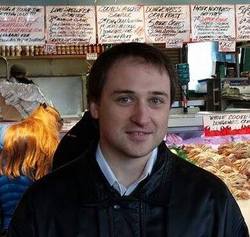
1. Bring Out the Dead is a very unique book, it touches on mythology, gods, monsters, the supernatural, Soviet Russia past and present, and how very lost Americans seem to be about those cultural elements in general. Could you tell us a bit about where the book came from?
Believe it or not, Bring Out the Dead started out from two things – a series of photographs, and an upcoming birthday. The photographs were posted by fellow author Bruno Lombardi (whose works I would strongly recommend), and depicted the real-life city of Norilsk, Russia in all its frozen, horribly polluted and industrialized glory. The birthday was my wife's, and knowing her taste in books, I thought I would give her a novel written with her taste in mind, outside of my normal science fiction fare. These two events went hand-in-hand – the pictures gave me an inspiration to learn more about Norilsk, its history, and the people who made that unforgiving place their home; the birthday gave me extra motivation to write, to add the elements that were both familiar and yet exotic to the American reader, and to put a personalized flair on my depiction of life in Russia.
Did I mention that the birthday was about three weeks away when I started on the novel? The deadline, in my opinion, brought out the best in me as a writer, and suitably wintery weather (it was the second half of November) made me see Norilsk, and its fictionalized alter ego Severozavodsk, every time I closed my eyes.
Bring Out the Dead was also my attempt to do something different. Most of my previous works took place in worlds far removed from our own, where histories, locales, and cultures had to be invented from scratch. For this novel, I decided to write what I know – in this case, Russian language, history, and culture, and financial industry (which is my occupation outside of writing). The rest came together quickly; I found that drawing on my personal experiences made it easy to create the kind of interactions, speech patterns, and even environments that made it into Bring Out the Dead. From there, the book took a life of its own.
2. You have a firm understanding of the culture and outlook of Eastern Europe by being from Ukraine originally, how do these things compare to American culture? Do you think this lends a unique voice to your work overall?
I think that there are many differences between the culture in much of the post-Soviet space, and the mainstream American culture, but the key aspects of differences have to do with the very disparate worldviews. Each society tends to create its own national mythos that defines its people, whether it is based on ethnicity, religion, language, or history. What do you, as a gestalt entity, look like? How did you govern yourself? Who were, or are, your proverbial natural enemies, the nations that you use to define yourself against?
Certain aspects of American cultural package are very hard to replicate elsewhere, if only because the American national mythos is so unique, globally speaking. The American history, if read at a high level, is a story of triumph after triumph, of going from strength to strength, and of retaining the same core character despite the ever-changing demographic and religious picture of the country. The Russian, and the Ukrainian history, in contrast, is the tale that ebbs and flows, that has periods of invasion, prolonged foreign occupation, unaccountable tyrannical rulers, and centuries of bad and inconsistent governance – all the while continuing to define what it means to be a Russian or a Ukrainian on the basis of ethnicity, not necessarily only based on adherence to a broad set of national principles.
In this context, I think that at its heart, American culture is optimistic. Russian and Ukrainian cultures are, on the contrary, rather fatalistic, accepting a form of spirituality to compensate for these negative expectations. That might be at the core of differences in outlook.
Speaking for myself, I am a product of that culture, even if tempered by spending more than half of my life in the United States. I think that it found a way into my literary voice, from how I structure sentences, to general moods I strive for, to certain aspects of my characters. I tend to go for many characters who occupy a very gray moral area, or who might be overthinking seemingly mundane actions in fear of the future.
Not all of these things are product of my background; after all, just as much was influenced by what I enjoy writing and reading, and what themes I find interesting. At the same time, I definitely think that coming from a very different cultural mythos helped me to develop my own voice, and hopefully to convey some unique viewpoints or ways to see the world through my writing.
3. Jake is definitely not a nice guy in the beginning. Was it hard writing a character who wasn’t your usual “hero”? Did you know he would always turn out this way?
To be honest, Jake just happened. Early on in the story, I realized that I needed to have the kind of character that all of us might know, someone who would feel realistic. At the beginning of the novel, and even further into the story, Jake is self-centered, ambitious, and unscrupulous, which, in a certain school of thought, are considered virtues for an entrepreneur. We all met people like him, who might be driven to reach for the elusive definition of “success” as described by motivational speakers or business classes, and who might be forgetting what it means to be truly human in the process.
Therefore, Jake is not perfect, and, at least the version that you meet early on, might have qualified as a minor villain in another story. In a way, Bring Out the Dead is the tale of how he rediscovers his essential humanity, starting to look beyond career advancement, salary, and the standard definition of success, and trying to make a different choice for himself and for those who depend on him.
My real challenge with Jake was to write a nuanced character who shows some growth and progression over the course of the novel. I was trying to avoid creating a stereotype with him, and to leave him with some room for personal development. For all the qualities he tries to suppress early on (that are not conducive to our definition of materialistic, cutthroat “success”), Jake is not ultimately as much of an unscrupulous individual as he thinks he is... and I like to think that by the time his story concludes, Jake is much more in touch with who he is as a person, what his values are, and what choices might represent the right thing to do.
4. Olga is a direct opposite to Jake, very optimistic and seeking freedom, what influenced her character?
A place like Severozavodsk has a way of breaking people, but it is also home to some. Even in the darkest places, there are little joys, there are people who live and laugh and look forward to the next day with anticipation. Olga is one such person, hopeful and optimistic and yet strong – for one has to be strong to thrive in the far north, one has to be able to put on the mask of fortitude and keep things from falling apart when needs must.
By its very nature, Bring Out the Dead includes a limited cast of characters, and as such, they had to be distinct from each other. Olga had to be strong and confident, and at the same time she had to be very, for the lack of a better word, Russian in her outlook and mannerisms. She had to be different from Jake, and to provide a catalyst for him to reevaluate his ways and then some. But most of all, she gave me a perfect opportunity to write a character who might have borrowed some traits from real people I know, but whose background and situation made her considerably different from those people.
5. You write an interesting blend of genres, horror, sci-fi, fantasy with a strong focus on realistic and genuine characters. Did you cultivate this style or was it always what you wrote?
While I do experiment with different writing techniques and different genres from time to time, the core of my style is very influenced by what I enjoy as a reader, and by what feels natural to me as a writer. The genre blend is a function of my interests, and is what I would consider my “natural” style of writing and plotting out books.
Of course, the specifics may vary greatly from story to story, but the core of the style tends to remain the same, whether I am writing about a body-snatching time traveler in XIIth century Constantinople, or about a futuristic soldier realizing that he is fighting on a wrong side of galactic civil war. I find a lot of enjoyment in creating characters I can believe in, whose dilemmas may make them heroes, villains, or, perhaps, a little bit of both.
6. What inspired “The Sleeper Beneath” your story in Inanna Rising: Women Forged in Fire? Will there be more to read about Mariana Fairdale?
I have always been a big fan of Michael Moorcock's take on dark fantasy, and The Sleeper Beneath is my homage to this type of a story. What is there not to like about the world that is familiar at a glance, only to dissolve into chaotic, post-apocalyptic weirdness where remnants of old technology coexist with quasi-barbarian warriors, and monsters go bump in the night? How about a character who has a grand destiny, or perhaps trying to avoid one, haunted by hard decisions and holding the fate of the world in her hands?
Introducing Mariana Fairdale, wanderer, warrior, and many more things, whose tale will definitely not be limited to The Sleeper Beneath. In that story, we meet Mariana as she travels through the demon-infested Caribbean towards the ruins of Florida. But why is she going there? Where did she come from, and what is the significance of her weapon? How did the world end in its present state? All of these are the questions I am hoping to answer in the future stories!
7. Your bio mentions metal is a major influence in your life, could you tell us a bit about that?
Metal, as a form of music, is very unique to me in that it harkens back not only to certain sound, but also to a certain ethos and subculture associated with it. There is passion associated with metal that no other genre of music seems to attract, at least in my experience, and the metal musicians were among the first to explore previously taboo themes in their lyrics and music, including existentialism, religion in all its forms (not just the traditional monotheism of religiously-inspired music), mythology and fantasy, and, eventually, introspection, philosophy, and politics.
As a teenager who first heard Iron Maiden and Metallica, and who eventually grew to associate with the long-haired, black-clad image, I found that metal spoke to me. It provided inspiration and guidance when I sought direction. It provided solace in times of solitude, and provided soundtrack in times of socializing. It served as a gateway to friendships I still maintain many years after the fact. It became a part of who I am as a person, and who I am as a musician and as a writer.
My long-term ambition is to create a concept metal album with a tie-in novel, or perhaps a novel with a tie-in album, which would augment each other and create one unique piece of work when combined. Who knows, it might be happening at some point!
8. What kind of stories and books do you think we can expect to see from you in the next year or so? Any big anthos?
I currently have several novel-length projects in the works, going back to my first literary love, science fiction. In addition, I have several novels that have been finished, and might need some polish before they can be submitted for publisher consideration.
In the meantime, my short story Inherit the Earth will be included in the upcoming Undead Legacy anthology of zombie stories from J. Ellington Ashton Press, and another short story (The Great Bear) will be in the upcoming Altered Europa anthology from Martinus Publishing. I am working on several other short stories for possible inclusion in other anthologies, and hope to revisit Mariana Fairdale some day soon.
Thank you for taking the time to speak with me!
Links:
Blog: https://alexshalenko.wordpress.com/
Amazon: http://www.amazon.com/Alex-Shalenko/e/B00TT9PSZA/ref=ntt_dp_epwbk_12
Facebook: https://www.facebook.com/worksofalexshalenko?ref=br_tf
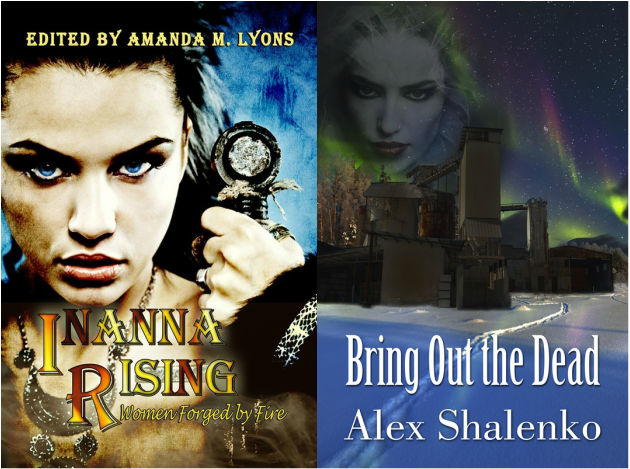
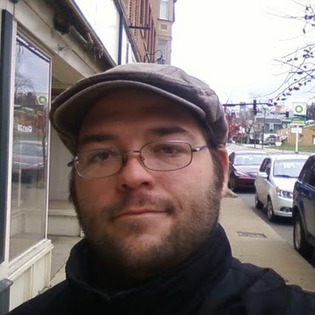
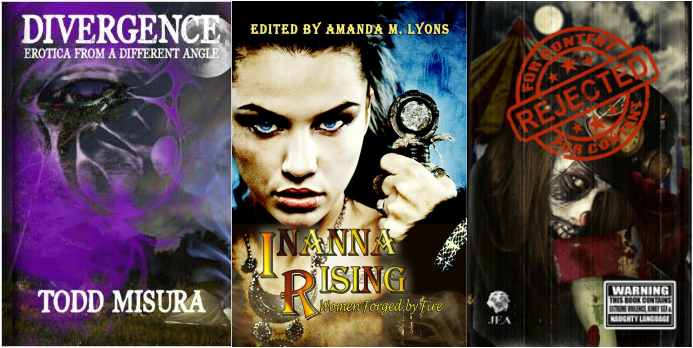

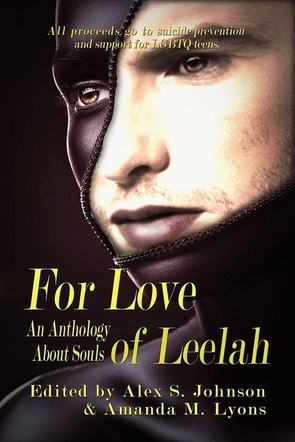
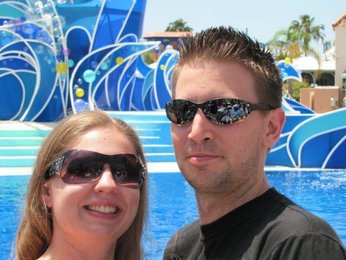
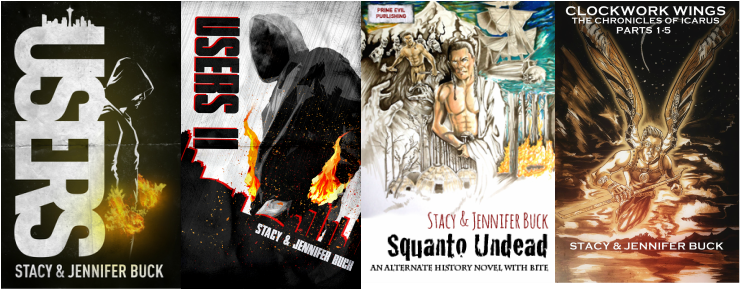
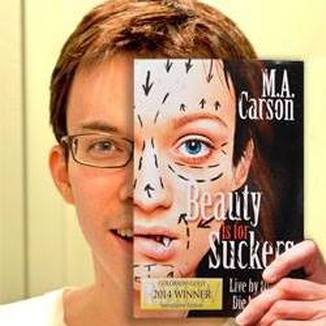
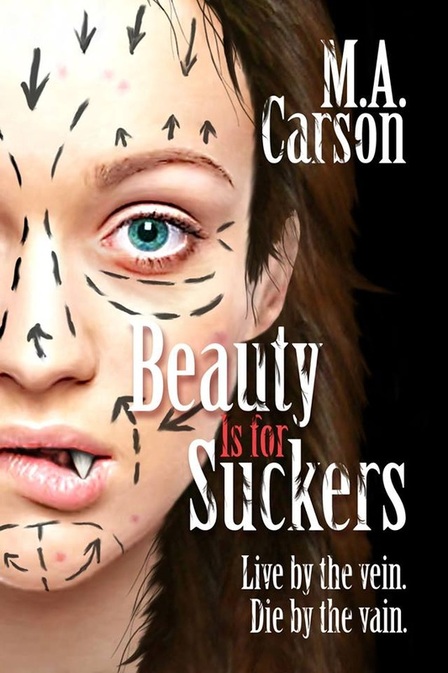
 RSS Feed
RSS Feed
